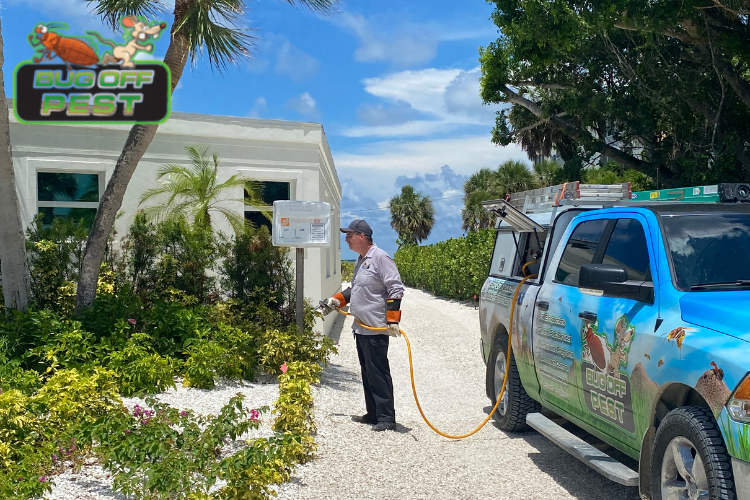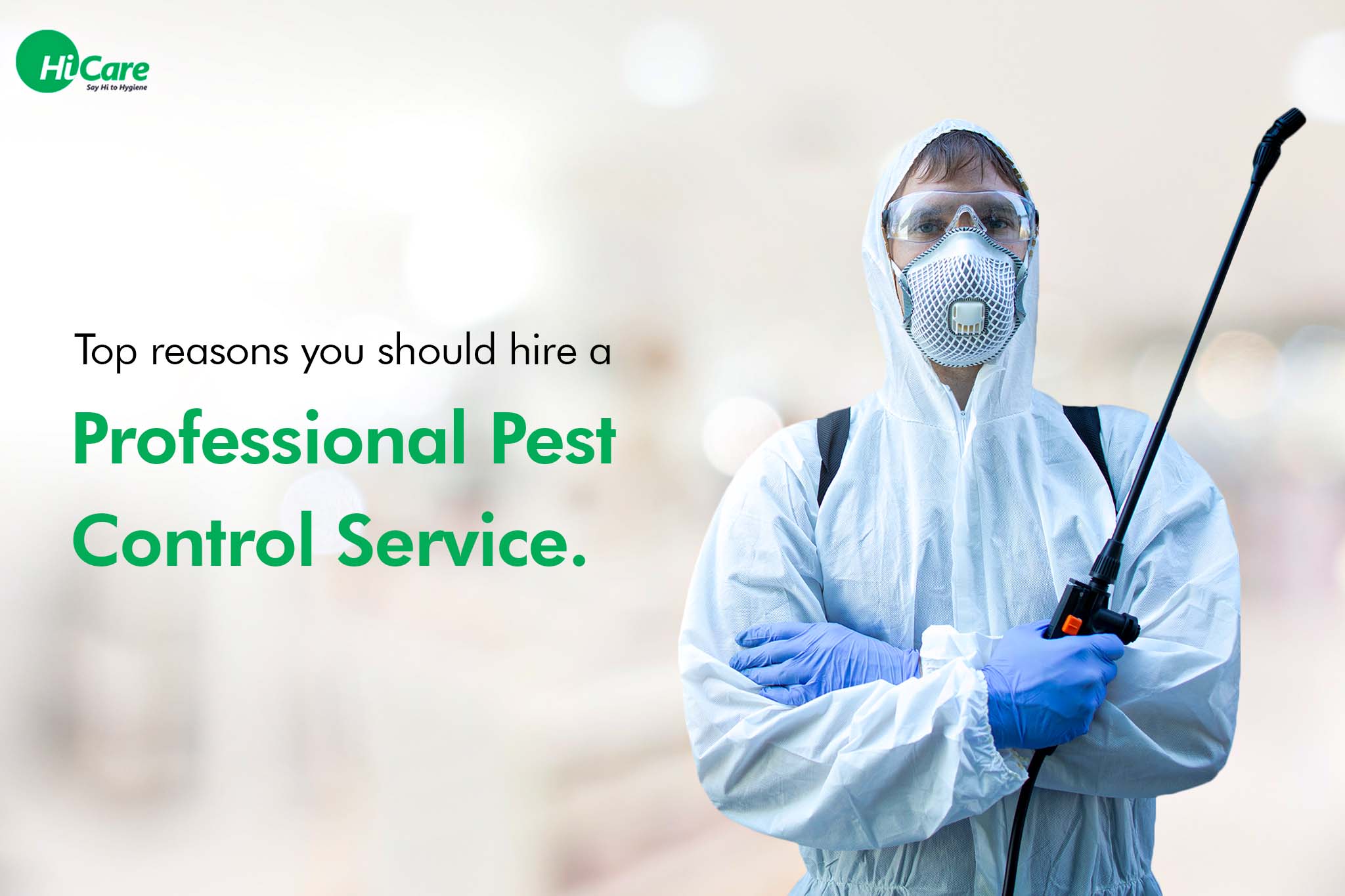Learn Concerning the Latest Developments in Parasite Control and Exactly How to Execute Efficient Therapy Solutions
In recent years, the area of bug control has observed considerable advancements, driven by the requirement for sustainable and reliable treatment remedies. Innovative strategies such as Integrated Bug Management (IPM) integrate environment-friendly techniques with innovative technology, improving both efficacy and environmental duty.
Eco-Friendly Parasite Control Options
Recently, the demand for environment-friendly pest control choices has actually risen as services and home owners alike look for lasting alternatives to traditional chemical treatments. This shift is driven by expanding environmental awareness and a desire to reduce the health threats related to synthetic pesticides.

Environment-friendly insect control techniques encompass a variety of approaches that focus on making use of all-natural materials and techniques. Integrated Insect Management (IPM) is one such strategy, integrating biological, cultural, and mechanical tactics to take care of insect populaces while minimizing reliance on chemicals (Wildlife removal services). This holistic approach highlights avoidance with environment control and the introduction of natural predators, therefore promoting a balanced community
One more preferred choice is making use of botanical chemicals originated from plants, which often tend to be less harmful to non-target organisms. Products like neem oil and diatomaceous earth have actually acquired grip for their effectiveness in managing pests while posing very little risks to human health and wellness and the setting.
Additionally, exemption strategies, such as sealing entry points and keeping cleanliness, play a critical duty in environment-friendly pest administration. By taking on these lasting practices, services and people can effectively manage pests while advertising a much healthier earth for future generations.
Smart Innovation in Pest Monitoring
Development is reshaping the landscape of pest administration, with wise modern technology becoming an essential pressure in boosting performance and performance - Wildlife removal services. The assimilation of Web of Points (IoT) tools, fabricated knowledge (AI), and information analytics is revolutionizing just how pest control professionals approach problems
Smart catches outfitted with sensors can find parasite task in real-time, sending instant notifies to operators. This enables for prompt feedbacks, minimizing damage and reducing the requirement for substantial therapies. Furthermore, AI formulas analyze historical information to anticipate bug behavior, enabling positive interventions based on ecological problems and infestation patterns.
Drones and automated lorries are additionally playing a substantial function in insect management, giving aerial analyses of big areas, recognizing hotspots, and also distributing targeted treatments. These technologies not just improve procedures however also improve safety by restricting human exposure to possibly dangerous chemicals.
Additionally, mobile applications encourage customers to keep track of parasite activity and accessibility professional recommendations, promoting a joint technique to pest management. Generally, the adoption of clever modern technology is setting a brand-new standard in bug control, emphasizing data-driven choices and lasting practices that eventually profit both professionals and home owners alike.
Integrated Parasite Management Approaches
Integrated Insect Monitoring (IPM) uses an alternative technique to pest control, combining different methods to effectively manage parasite populations while reducing dangers to human wellness and the environment. IPM revolves around comprehending the pest life process, their all-natural enemies, and the community in which they termite insecticide prosper.
One of the fundamental elements of IPM is keeping an eye on pest populaces with routine evaluations and information collection. This enables the identification of insect thresholds, establishing when treatment is necessary. Cultural practices, such as crop hygiene, rotation, and habitat manipulation, are important in minimizing insect frequency and promoting plant health.
Mechanical controls, consisting of barriers and catches, are likewise crucial in IPM. These techniques can physically remove or deter pests without making use of chemicals. When needed, the cautious application of chemical controls is employed, concentrating on targeted therapies that decrease environmental influence.
Education and learning and partnership among stakeholders, including farmers, parasite control professionals, and the area, are critical for the effective implementation of IPM strategies. By focusing on lasting methods, IPM not only addresses pest concerns yet likewise fosters a much healthier ecological community.
Biological Control Techniques
Various organic control techniques are progressively identified for their performance in handling insect populaces while promoting ecological equilibrium. These techniques harness all-natural predators, bloodsuckers, and microorganisms to reduce pest numbers without counting on synthetic chemicals. electronic pest control device The introduction of ladybugs can effectively regulate aphid populations, while nematodes target soil-dwelling bug larvae.
Additionally, using microbial chemicals, such as Bacillus thuringiensis (Bt), offers an eco-friendly choice for handling caterpillar parasites. These items especially target pest types, minimizing damage to beneficial bugs and pollinators. Preservation organic control emphasizes improving environments for all-natural enemies, such as birds and beneficial bugs, therefore encouraging their presence in agricultural systems.
Research study proceeds to reveal ingenious strategies within this area, such as the use of pheromones to disrupt pest mating patterns or the growth of biocontrol agents with hereditary design. Implementing these methods can result in sustainable bug administration techniques that minimize the reliance on chemical interventions, ultimately fostering healthier environments. As understanding of these methods expands, they are coming to be integral parts of incorporated parasite monitoring (IPM) strategies, offering an equilibrium between efficient insect control and environmental stewardship.
DIY Insect Control Solutions
As property owners look for efficient methods to deal with bug problems, do it yourself parasite control services have obtained popularity for their availability and cost-effectiveness. These methods equip people to resolve infestations making use of readily available products and techniques, commonly without the demand for professional intervention.

Additionally, maintaining proper sanitation and normal examinations can protect against parasite entrance and nesting (Wildlife removal services). Easy practices, such as sealing cracks, getting rid of food resources, and decluttering, can here substantially decrease pest populaces. Catches, both homemade and readily offered, can also supply efficient services for tracking and controlling details bugs like bugs or rodents

Conclusion
The assimilation of environment-friendly pest control choices, clever innovation, and cutting-edge management techniques presents a detailed approach to efficient parasite management. By accepting Integrated Parasite Administration (IPM) and utilizing biological control techniques, along with DIY options, lasting and responsible insect control can be attained.
Eco-friendly insect control techniques incorporate an array of approaches that prioritize the use of all-natural materials and techniques. Integrated Pest Administration (IPM) is one such technique, integrating organic, social, and mechanical methods to manage pest populations while decreasing dependence on chemicals. As awareness of these techniques grows, they are ending up being important parts of incorporated parasite management (IPM) strategies, using an equilibrium between effective parasite control and ecological stewardship.
The assimilation of eco-friendly pest control options, smart technology, and innovative administration methods provides a detailed technique to efficient insect administration. By embracing Integrated Insect Administration (IPM) and using biological control methods, along with Do it yourself options, liable and sustainable insect control can be achieved.